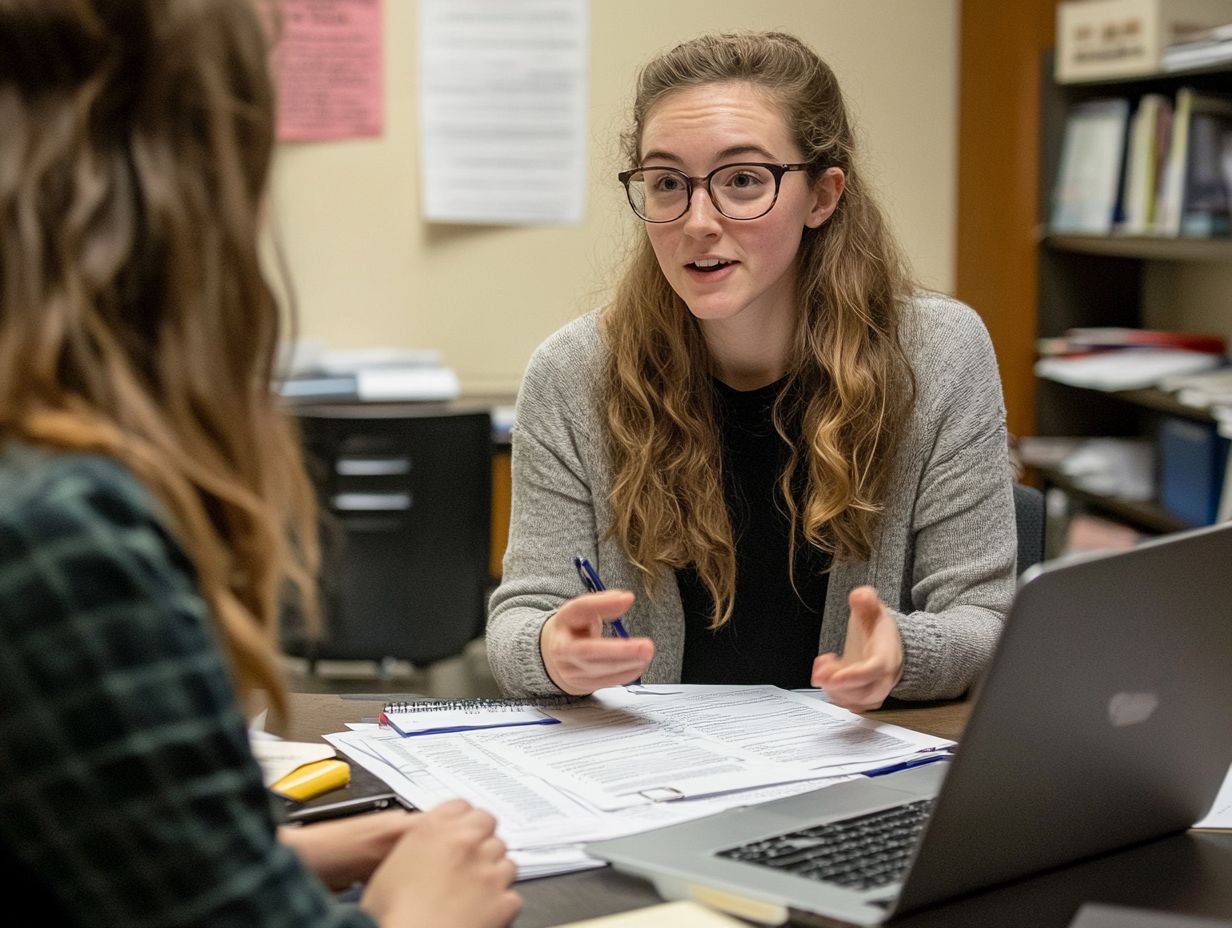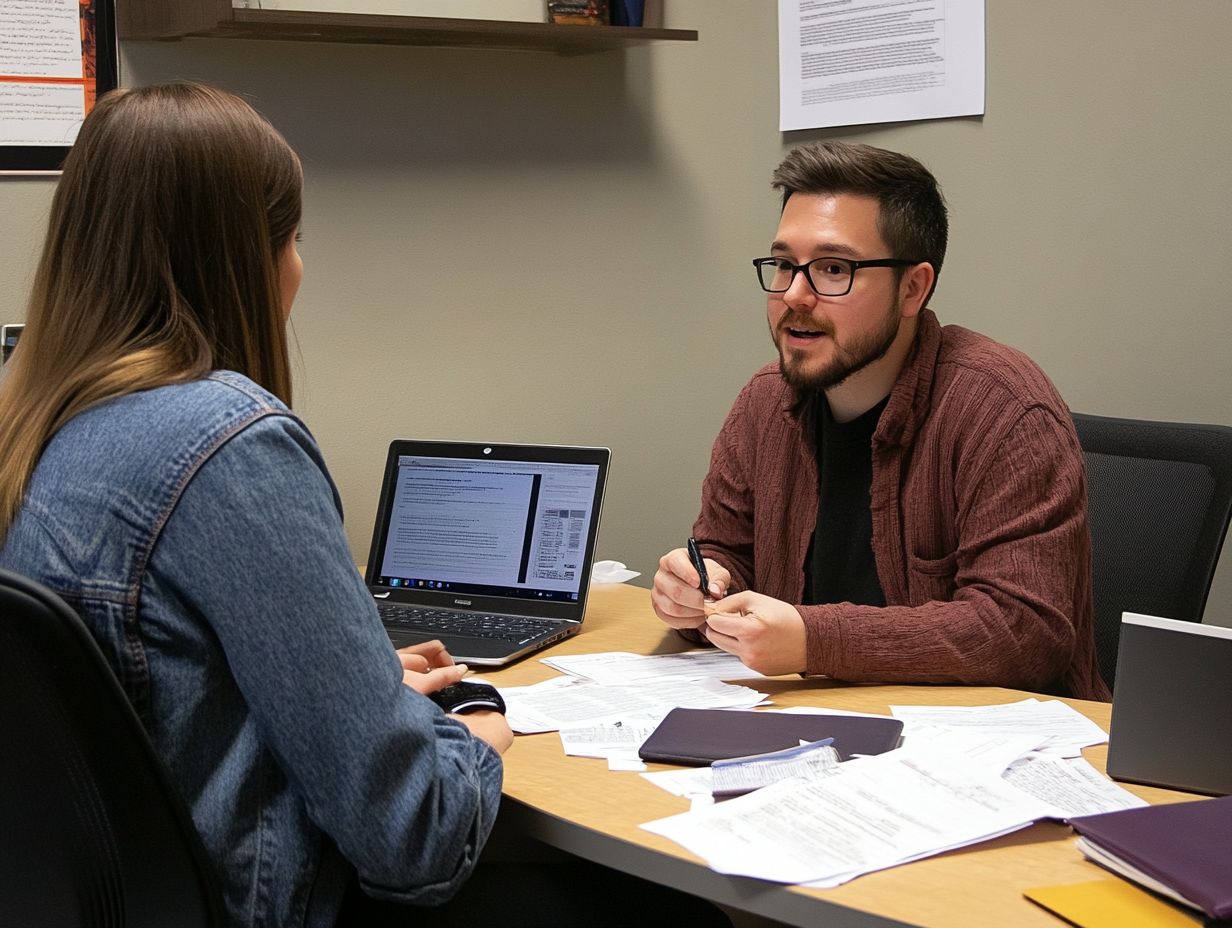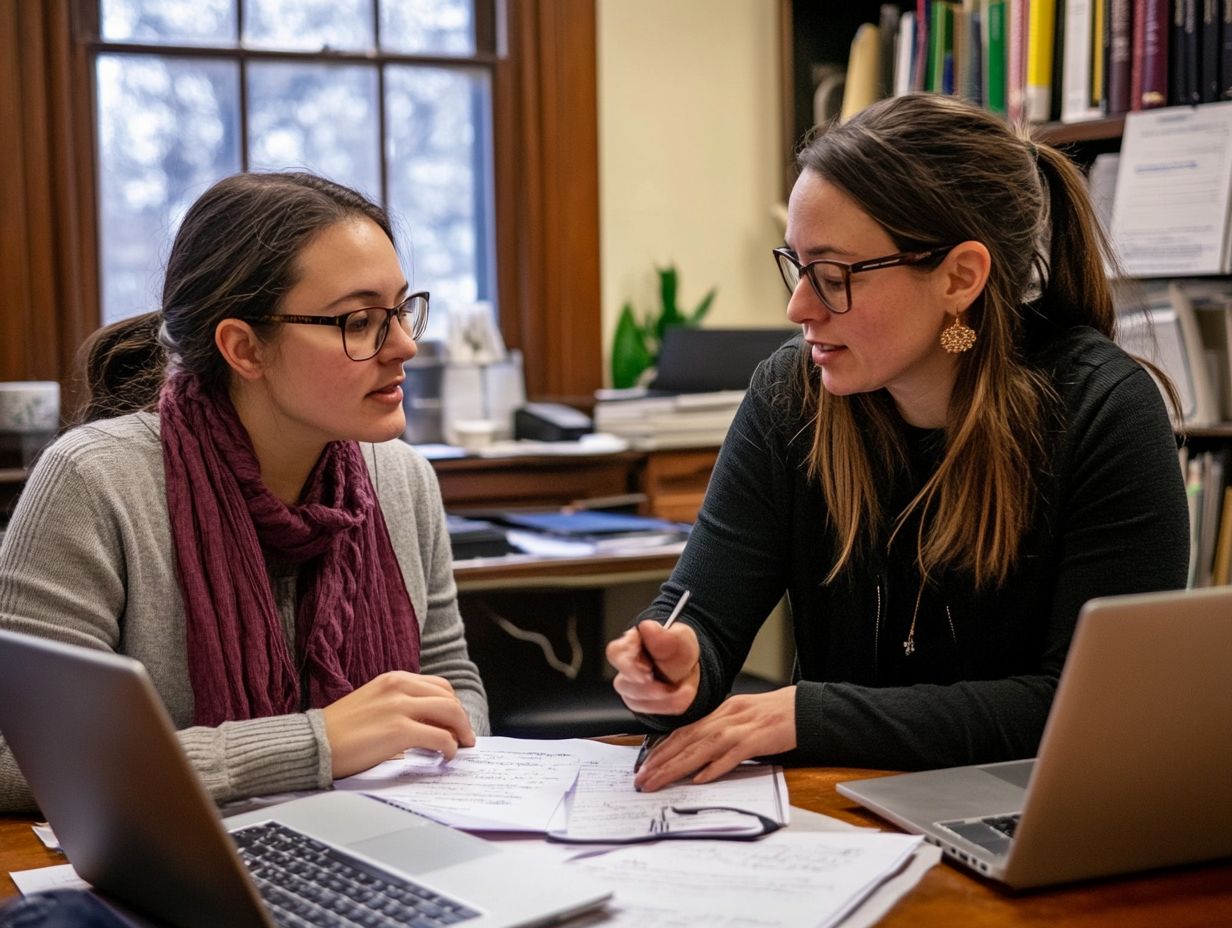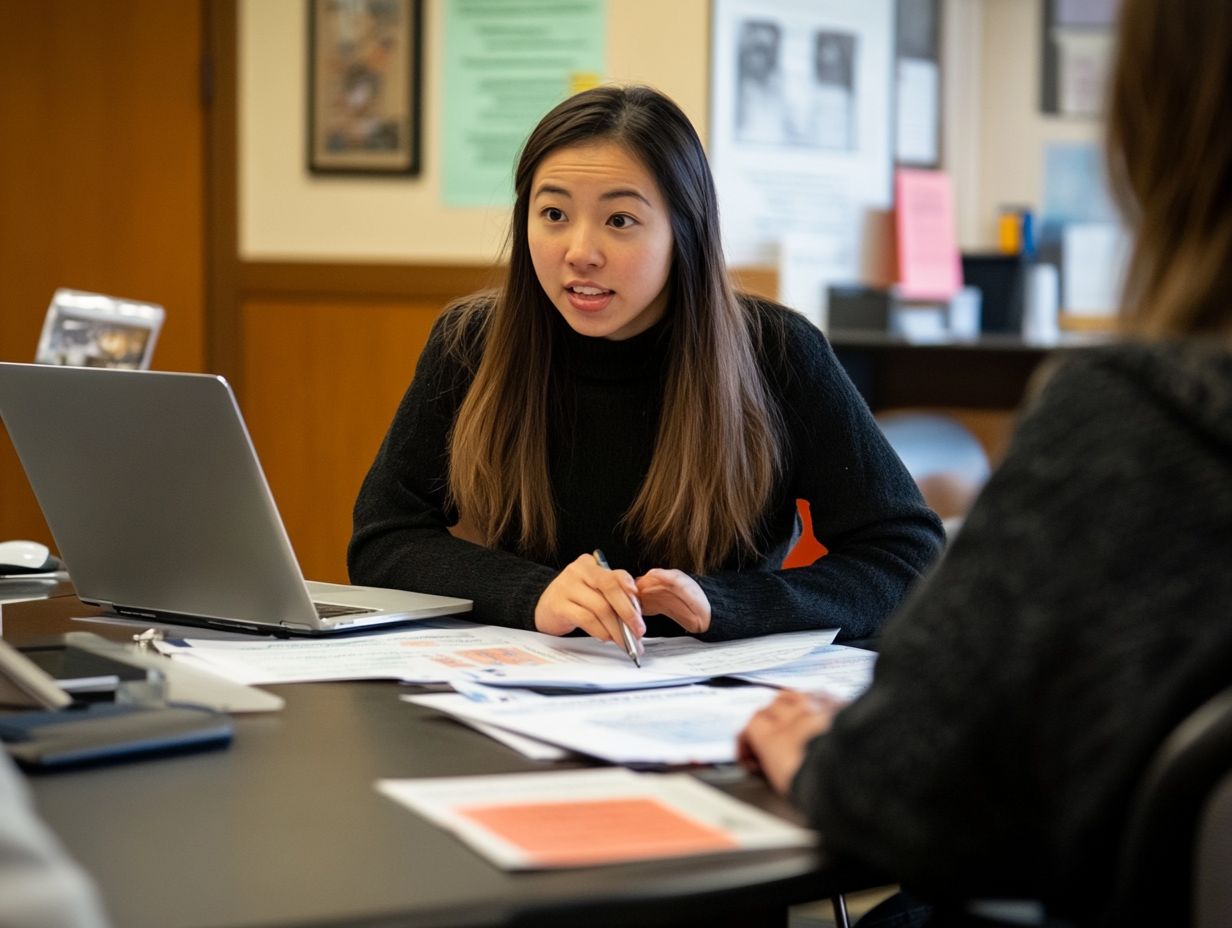Can I Change My Program After Arrival?
Changing your academic program is a significant decision that can profoundly impact your educational journey and future career prospects.
Whether you’re feeling unfulfilled in your current path or are seeking new opportunities, understanding the nuances of program changes is essential for your success.
This article explores what constitutes a program change, when these changes are possible, and the common motivations that drive such decisions.
You’ll also find a comprehensive step-by-step guide on navigating the process, along with important considerations regarding your visa and enrollment status, as well as alternatives worth exploring.
Let s dive into everything you need to know for an effective transition between programs.
Contents
- Key Takeaways:
- Understanding Program Changes
- Reasons for Changing Programs
- Common Motivations for Program Changes
- How to Change Your Program
- Considerations Before Changing Programs
- Alternatives to Changing Programs
- Frequently Asked Questions
- Can I Change My Program After Arrival?
- What should I do if I want to change my program?
- Is there a deadline for making program changes?
- Will I need to apply for a new visa if I change my program?
- What documents will I need to provide?
- Can I change my program if I received a scholarship for my current program?
Key Takeaways:

- Changing programs is possible, but certain requirements must be met.
- Common reasons for changing programs include dissatisfaction or a change in personal goals.
- Consider the impact on your visa and enrollment status before changing programs. Explore other alternatives as well.
Understanding Program Changes
Understanding program changes is essential for F-1 students. It requires navigating the intricate landscape of academic regulations, immigration policies, and institutional processes tied to changing your course of study.
This decision can affect your academic journey, visa status, and the length of your program within a designated learning institution (DLI).
If you’re contemplating a change in your major or degree level, it s crucial to understand the notification procedures and the implications for your SEVIS record. SEVIS is the Student and Exchange Visitor Information System that helps track your immigration status.
Doing so ensures compliance with Department of Homeland Security regulations and paves the way for achieving your educational and career aspirations.
What Constitutes a Program Change?
A program change refers to any adjustment in your F-1 academic journey, including a shift in your major, degree level, or curriculum.
Such changes can significantly influence your academic path, potentially affecting your visa status and access to certain benefits. For instance, switching majors may require you to meet new requirements or take on a fresh array of courses that align with your new focus.
If you’re moving from a master s program to a doctoral program, it s essential to reassess your academic expectations and financial considerations.
Don’t wait notify your Office of International Students and the Office of the Registrar as soon as possible. These offices are crucial in updating your records and ensuring you remain compliant with immigration regulations, which protects your ability to continue studies in the U.S.
When is a Program Change Possible?
A program change is possible for you as an F-1 student, provided certain conditions align with your academic goals and comply with immigration regulations.
You can initiate changes if your current program no longer fulfills your educational aspirations or if you wish to transfer to a different institution.
It’s crucial to make this transition within a specific timeframe, ideally before finishing your current program, to avoid complications with your visa status.
As you plan this change, notify the person at your school responsible for student visas and ensure that your SEVIS record is updated without delay. Following these procedures helps maintain compliance with Department of Homeland Security regulations, safeguarding your status in the United States as you continue your educational journey.
Reasons for Changing Programs

Understanding the reasons behind program changes is crucial for F-1 students. It clarifies their academic and career aspirations, especially in today’s ever-evolving educational landscape.
Common Motivations for Program Changes
Common motivations for program changes among F-1 students often arise from a desire to better align their academic pursuits with their career goals, particularly regarding Optional Practical Training (OPT) opportunities.
As you gain insights into various industries, this alignment becomes increasingly crucial. It prompts shifts toward fields that offer promising job prospects. For instance, if you are an F-1 student studying environmental science, you might notice a rising demand in renewable energy. You may decide to pivot toward that specialty to boost your employability.
Academic advisors are instrumental in guiding you through this process. They recommend program changes based on emerging market trends and your unique strengths. These adjustments can significantly enhance your internship prospects, ultimately shaping your professional journey in a competitive landscape.
How to Change Your Program
Changing your program as an F-1 student involves a structured process that requires careful attention. You will need to submit a Change in Major request, update your financial documents, and notify the Office of International Student Services.
This helps ensure your new I-20 accurately reflects your changes. Taking these steps diligently will help you navigate the transition smoothly and keep everything in compliance.
Step-by-Step Guide
The step-by-step guide for F-1 students looking to change their program involves several critical steps. These include submitting a Change in Major form, updating your financial documents, and obtaining a new I-20 from your school or university.
Before diving into these tasks, it is essential to consult your academic advisor to ensure the desired program aligns with your academic and career goals. Once you have gathered the necessary information, begin the process by carefully filling out the Change in Major form. Pay close attention to any specific instructions provided by your institution.
Next, prepare to update your financial documents. This may require submitting proof of sufficient funding to cover the expenses of your new program. After completing these steps, you will need to request a new I-20 by reaching out to the Office of International Student Services. Make sure to provide all required documentation.
Effective communication with both the Office of International Student Services and the Office of the Registrar is crucial. Keep your messages concise, clear, and polite. Be sure to respond promptly to any inquiries to ensure a smooth transition.
Start your program change today to align your studies with your career aspirations!
Considerations Before Changing Programs

Before changing programs, F-1 students should take time to evaluate the potential impact on their visa and enrollment status. Ensuring compliance with immigration regulations is vital not only for maintaining legal status but also for safeguarding academic progress.
Impact on Visa and Enrollment Status
The impact of changing programs on your F-1 visa and enrollment status can be substantial. It may affect your ability to maintain legal residency and continue your studies in the United States.
When you decide to switch programs, it is crucial to recognize that this transition requires an update to your Student and Exchange Visitor Information System (SEVIS) records. Neglecting to do so could lead to complications with your visa status, potentially jeopardizing your right to remain in the country. Maintaining your status as a student is vital, as it can significantly influence your future opportunities, including eligibility for work permits under Optional Practical Training (OPT) or Curricular Practical Training (CPT).
Proactive communication with the Office of International Student Services is essential. They can offer guidance and support, ensuring you take all necessary steps to remain compliant with immigration regulations, making your transition into the new program as seamless as possible.
Alternatives to Changing Programs
Exploring alternatives to changing programs can provide you with viable paths to achieve your academic and career goals, all without the need for a complete program overhaul.
Exploring Other Options
F-1 students can explore alternatives like co-majors or minors. This approach helps students gain new knowledge without changing their main focus.
By choosing a co-major or minor, students customize their education to fit their interests and career goals. For example, a student majoring in Business may find that minoring in Communications enhances their job prospects.
When considering these options, students should speak with academic advisors. These advisors provide important insights and help avoid the hassle of completely changing academic paths.
Frequently Asked Questions

Can I Change My Program After Arrival?
Yes, changing your program is possible in some cases. However, it depends on factors such as your visa status, school policies, and available slots in the new program.
What should I do if I want to change my program?
First, consult with your designated school official (DSO) the person who helps you with your visa and school matters. Discuss your reasons for wanting to change your program, and they will guide you through the process.
Is there a deadline for making program changes?
Act quickly! Making changes to your program right after you arrive gives you the best options. Some schools may have specific deadlines for program changes, so check with your DSO or international student advisor for the exact date.
Will I need to apply for a new visa if I change my program?
It depends on your current visa type and the new program you want to enroll in. If your visa allows for the new program and you haven’t exceeded your allowed period of stay, you may not need to apply for a new visa. Always consult with your DSO or international student advisor for guidance.
What documents will I need to provide?
You may need to provide a written statement explaining your reason for changing your program, proof of financial support, and a new acceptance letter from the school offering the new program. Your DSO or international student advisor will inform you of any additional documents that may be required.
Can I change my program if I received a scholarship for my current program?
It depends on the terms and conditions of your scholarship. Consult with your scholarship provider and your DSO or international student advisor to determine if it s possible to transfer the scholarship to the new program.
Have questions? Don t hesitate to ask your advisor!






